#php vs asp.net security
Explore tagged Tumblr posts
Text
Windows or Linux? Finding Your Perfect Match in the VPS Hosting Arena
In the ever-evolving landscape of Virtual Private Server (VPS) hosting, the choice between Windows and Linux is pivotal. Your decision can significantly impact your website's performance, security, and overall user experience. At l3webhosting.com, we understand the importance of this decision, and we're here to guide you through the intricacies of choosing the perfect match for your hosting needs.
Understanding the Basics: Windows vs. Linux
Windows VPS Hosting: Unveiling the Dynamics
When it comes to Windows VPS hosting, users are drawn to its familiarity and seamless integration with Microsoft technologies. For websites built on ASP.NET or utilizing MSSQL databases, Windows VPS is the natural choice. The user-friendly interface and compatibility with popular software make it a preferred option for businesses relying on Microsoft-centric applications.
Windows VPS provides robust support for various programming languages, ensuring a versatile hosting environment. The seamless compatibility with Microsoft's IIS (Internet Information Services) enhances website performance, especially for those developed using .NET frameworks.
Linux VPS Hosting: Unleashing the Power of Open Source
On the other side of the spectrum, Linux VPS hosting thrives on the principles of open source software. The inherent flexibility and stability of Linux attract developers and businesses looking for a reliable hosting foundation. Websites built using PHP, Python, or Ruby on Rails often find Linux to be the optimal environment.
Linux's renowned security features, including the capability to customize firewall settings, contribute to a robust defense against potential cyber threats. Additionally, Linux VPS hosting typically comes at a lower cost, making it an economical choice without compromising performance.
Performance Benchmark: Windows vs. Linux
Windows Performance Metrics
Windows VPS excels in scenarios where compatibility with Microsoft technologies is paramount. The integration with .NET applications and MSSQL databases ensures optimal performance for websites that rely on these frameworks. The user-friendly interface also simplifies management tasks, providing a smooth experience for administrators.
However, it's essential to note that Windows VPS may require more system resources compared to Linux, impacting scalability and cost-effectiveness for resource-intensive applications.
Linux Performance Metrics
Linux VPS, being lightweight and resource-efficient, offers excellent performance for a wide range of applications. The open-source nature of Linux enables users to tailor the operating system to their specific needs, optimizing performance and resource utilization.
Linux excels in handling concurrent processes and multiple users simultaneously, making it an ideal choice for high-traffic websites. Its stability and ability to run efficiently on minimal hardware make it a cost-effective solution for businesses mindful of their hosting budget.
Security Considerations: Windows vs. Linux
Windows Security Features
Windows VPS prioritizes security with features like BitLocker encryption, Windows Defender, and regular security updates. The familiarity of Windows security protocols can be reassuring for users accustomed to the Microsoft ecosystem.
However, the popularity of Windows also makes it a target for cyber threats. Regular updates and a robust security posture are crucial to mitigating potential risks.
Linux Security Features
Linux VPS boasts a solid reputation for security, primarily due to its open-source nature. The community-driven development and constant scrutiny contribute to swift identification and resolution of security vulnerabilities.
The ability to customize firewall settings and the availability of robust security tools make Linux a secure choice for websites that prioritize data protection and threat prevention.
Making Your Decision: Tailoring Hosting to Your Needs
Factors Influencing Your Choice
When deciding between Windows and Linux VPS hosting, consider the nature of your website, the technologies it relies on, and your budgetary constraints. If your website is built on Microsoft-centric frameworks, Windows VPS might be the most seamless option. On the other hand, Linux VPS offers versatility, cost-effectiveness, and robust security, making it an attractive choice for many users.
Our Recommendation
At l3webhosting.com, we understand that each website is unique. Our recommendation is tailored to your specific needs, ensuring that you make an informed decision based on performance requirements, budget considerations, and long-term scalability.
Conclusion: Your Hosting Journey Begins
In the dynamic world of VPS hosting, choosing between Windows and Linux is a critical decision. Understanding the nuances of each platform allows you to make an informed choice, aligning your hosting environment with your website's specific requirements.
2 notes
·
View notes
Text
The Evolution of the Full Stack Web Developer: Then vs. Now
Technology is moving at lightning speed, and so are the people who build it. One such pivotal role in the digital space is that of the full stack developer—a professional who juggles both the front-end and back-end of web applications. But like all things in tech, the role of the full stack developer has undergone massive transformation over the past two decades.
So, how did we get from the simple websites of the early 2000s to today’s complex, cloud-integrated, API-driven web apps? Let’s walk through the evolution of the full stack web developer: then vs. now.
Back Then: Simpler Times, Simpler Stacks
In the early days of the internet, being a full stack developer meant you were a jack-of-all-trades—but the stack was far less complicated. Websites were relatively static, and the tools were limited but manageable.
What defined a full stack developer then?
HTML, CSS, and a bit of JavaScript: These were the core technologies for building any web interface.
Backend scripting with PHP or ASP.NET: Most developers used server-side languages like PHP for form processing and basic database interactions.
Databases like MySQL: Relational databases were the go-to for storing content.
Little to no version control: Most code was shared via ZIP files or FTP uploads.
Solo development: Often, a single developer managed the entire website—from writing HTML to setting up servers.
This era was defined by simplicity, but also by limitations. Sites were slower, less interactive, and rarely mobile-friendly. Yet, in those early days, one developer could manage it all.
Now: Complexity, Collaboration, and Constant Learning
Fast forward to today, and the web is a different beast. Users expect speed, responsiveness, personalized experiences, and seamless integration with other apps. To meet these expectations, the full stack developer has had to evolve dramatically.
What does a full stack developer look like now?
Front-End Frameworks: React, Angular, or Vue are commonly used for building dynamic user interfaces.
Back-End Powerhouses: Node.js, Django, Ruby on Rails, or even serverless functions on AWS or Azure.
Cloud & DevOps: Modern full stack developers often deploy on cloud platforms and manage CI/CD pipelines.
APIs and Microservices: Today’s applications are modular, and developers must work with RESTful APIs and sometimes GraphQL.
Database Variety: From SQL to NoSQL (MongoDB, Firebase), data storage is more versatile.
Version Control and Collaboration Tools: Git, GitHub, GitLab, and platforms like Jira and Slack are essential.
Security & Performance: Awareness of cross-site scripting, data encryption, and performance optimization is critical.
Modern full stack developers don’t just write code—they’re architects, problem-solvers, and collaborators.
The Human Side of the Evolution
Let’s not forget the human element. Twenty years ago, being a full stack developer often meant learning by doing. There were fewer formal resources, and “Googling it” wasn’t even a thing. Now, developers have access to endless online courses, forums, and bootcamps—but they also face constant pressure to keep up.
Challenges modern full stack developers face:
Burnout from constant learning
Juggling too many technologies
Unclear job definitions in some companies
Need to balance depth vs. breadth of skills
However, despite the complexity, today’s developers are part of a global community. They share code, contribute to open source, and support one another. That’s something that has only grown stronger over time.
The Stack Is Evolving—And So Is the Developer
The definition of a full stack developer continues to shift. Some developers specialize more in either front-end or back-end, while still understanding both. Others become tech leads, DevOps engineers, or product-focused developers. But at its core, the role is about versatility and adaptability.
Key skills of a modern full stack developer:
Proficiency in multiple languages and frameworks
Problem-solving mindset
Understanding of UI/UX principles
Ability to work with databases, APIs, and cloud infrastructure
Strong communication and teamwork skills
Conclusion: From Hackers to Architects
The journey from the humble beginnings of web development to today’s sophisticated tech stacks is a fascinating one. The full stack developer of the past may have worked alone, but the modern developer thrives in collaboration, supported by tools, teams, and an ever-growing tech ecosystem.
The evolution of the full stack web developer: then vs. now reminds us that while tools and technologies will continue to change, the heart of development—curiosity, creativity, and code—remains the same.
0 notes
Text
ERP Software Company in Kochi

Introduction
Kochi, the commercial capital of Kerala, is witnessing a surge in digital transformation across industries such as shipping, IT, tourism, manufacturing, and retail. One of the primary technologies accelerating this change is Enterprise Resource Planning (ERP). This blog explores the growing demand and offerings of ERP software companies in Kochi, the advantages they bring to various sectors, and how businesses can leverage SEO-optimized ERP development services for visibility and growth.
What is ERP Software?
ERP is a centralized business management solution that integrates various core functions—such as finance, human resources, inventory, production, and customer relationship management—into one seamless platform.
Core ERP Modules:
Financial Accounting
Inventory and Warehouse Management
Human Resource Management
Customer Relationship Management (CRM)
Manufacturing and Production Planning
Procurement and Supply Chain Management
Project Management
Business Intelligence & Reporting
Importance of ERP Software in Kochi's Business Landscape
1. Shipping and Logistics
ERP helps in managing fleet operations, cargo tracking, freight billing, and port logistics with real-time data accuracy.
2. Tourism and Hospitality
Enhances booking systems, inventory, guest experiences, HR, and payroll management in resorts and hotels.
3. Manufacturing Units
Supports production scheduling, raw material procurement, quality control, and equipment maintenance.
4. Retail and E-commerce
Provides centralized stock management, real-time sales analytics, and POS system integrations.
5. Healthcare Institutions
Streamlines patient record systems, billing, compliance, and hospital inventory management.
Benefits of ERP Software for Kochi-Based Enterprises
Enhanced Productivity
Centralized Information Access
Improved Financial Control
Efficient Resource Allocation
Regulatory Compliance and Reporting
Custom Dashboard and KPIs Monitoring
Remote and Mobile Access with Cloud ERP
Multi-language and Multi-currency Support
Top ERP Software Companies in Kochi
1. Infopark Solutions Pvt. Ltd.
Specialized in scalable ERP systems for manufacturing and export businesses.
2. KochiSoft ERP Developers
Offers modular and cloud-based ERP with CRM and HR integration.
3. Zerone Technologies
Known for robust and secure ERP software for financial institutions and logistics firms.
4. NavAlt Technologies
Focuses on maritime, marine, and industrial ERP customization.
5. Techno Globe ERP Solutions
Delivers enterprise-grade ERP with IoT, AI, and automation features for large organizations.
Custom ERP Development vs. Ready-Made Software
Feature Custom ERP Ready-Made ERP Personalization Fully customizable Limited customization Cost Higher initial investment Lower upfront cost Integration Seamless with existing tools May require APIs Scalability Highly scalable Depends on vendor Time to Deploy Longer Quicker setup
Technologies Used in ERP Development in Kochi
Languages: Python, Java, PHP, C#
Frameworks: Odoo, SAP, Oracle NetSuite, ASP.NET
Databases: PostgreSQL, MySQL, Oracle, MS SQL
Platforms: AWS, Azure, On-premise Servers
UI/UX: ReactJS, Angular, Bootstrap
Mobile: Flutter, Kotlin, Swift for mobile ERP apps
Industries That Benefit Most from ERP in Kochi
Maritime and Logistics Companies
Coir and Agro-Based Exporters
Rubber and Chemical Manufacturers
Multi-chain Retailers and Wholesalers
Educational Institutes and Universities
Ayurveda and Wellness Centers
Hospitals and Diagnostic Labs
Tourism and Hotel Groups
Future Trends in ERP Development in Kochi
AI-Driven Forecasting and Predictive Analytics
Blockchain in ERP for Transparent Supply Chains
IoT-Integrated Smart Manufacturing ERP
Chatbot Integration and Voice Commands
Augmented Reality (AR) for Real-time Data Visualization
Conclusion
ERP software companies in Kochi are playing a vital role in modernizing business operations, enhancing productivity, and delivering data-driven insights. From SMEs to large-scale industries, ERP adoption is no longer optional but essential. Custom ERP development tailored to local business needs is empowering Kochi-based enterprises to thrive in an increasingly competitive marketplace.
0 notes
Text
ASP.NET vs. Other Web Development Frameworks: Features, Benefits, and Use Cases
In the dynamic world of web development, selecting the right framework is crucial for creating robust and scalable web applications. Among the plethora of options, ASP.NET, a Microsoft-powered framework, stands out for its versatility and enterprise-grade capabilities. This article explores how ASP.NET compares with other popular frameworks like PHP, Ruby on Rails, and Django, focusing on their features, benefits, and use cases.
What is ASP.NET?
ASP.NET is a powerful server-side web development framework integrated into the .NET ecosystem. It supports multiple programming languages like C# and Visual Basic, offering developers a flexible and efficient environment. The framework’s adoption of the Model-View-Controller (MVC) architecture simplifies code organization, making development and maintenance more efficient.
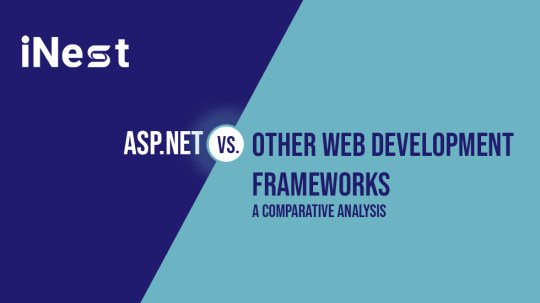
Key highlights of ASP.NET include:
Cross-platform compatibility with .NET Core.
Seamless integration with Microsoft technologies.
A rich Integrated Development Environment (IDE) in Visual Studio.
Comparative Analysis: ASP.NET vs Other Frameworks
ASP.NET vs PHP
Performance: ASP.NET applications are compiled, ensuring faster execution compared to PHP’s interpreted scripts.
Security: The framework’s integration with the Windows operating system offers advanced security features, making it ideal for enterprise-grade applications.
Use Case: Choose ASP.NET for large-scale, performance-critical projects, while PHP is suited for lightweight and budget-conscious applications.
ASP.NET vs Ruby on Rails
Development Environment: ASP.NET’s Visual Studio IDE is a robust tool with features like code completion and debugging, offering a superior developer experience.
Scalability: Both frameworks support scalability, but ASP.NET’s deep integration with .NET technologies makes it ideal for enterprise applications.
Use Case: ASP.NET is preferred for projects needing comprehensive Microsoft ecosystem support, while Ruby on Rails is favored for startups emphasizing speed and simplicity.
ASP.NET vs Django
Modularity: Both frameworks excel in modularity and scalability. However, ASP.NET benefits from its extensive library support and Microsoft ecosystem.
Integration: ASP.NET’s compatibility with Microsoft technologies makes it a compelling choice for enterprises already invested in the ecosystem.
Use Case: ASP.NET is well-suited for large-scale applications requiring seamless integration with Windows systems, while Django shines in data-driven applications powered by Python.
Key Features of ASP.NET
MVC Architecture
Enhances maintainability and debugging.
Separates application concerns for better organization.
Visual Studio IDE
Offers tools like code completion, debugging, and performance analysis.
Cross-platform Support
Enabled by .NET Core, ASP.NET runs on Windows, macOS, and Linux.
Advantages of ASP.NET
Language Interoperability
Supports multiple languages, fostering team collaboration.
Scalability and Performance
Handles high user volumes effortlessly.
Robust Security Features
Built-in authentication and authorization mechanisms.
Choosing the right web development framework depends on your project requirements, team expertise, and long-term goals. ASP.NET excels in scalability, performance, and integration, making it a top contender for enterprise-level web applications.
Whether you opt for PHP’s simplicity, Ruby on Rails’ developer-friendly conventions, or Django’s modularity, understanding their strengths ensures an informed decision. As technology advances, ASP.NET continues to provide a comprehens
ive and reliable solution for building modern, scalable web applications.
Ready to build robust and scalable web applications? Contact iNstaweb today to harness the power of ASP.NET and elevate your web development projects!
#ASP.NET comparison#ASP.NET vs PHP#ASP.NET vs Ruby on Rails#ASP.NET vs Django#web development frameworks#ASP.NET features#scalable web applications
0 notes
Text
PHP Vs ASP.NET – Which is Best for Web Application Development?
PHP and ASP.NET are leading frameworks for web development, widely used by web development companies to create innovative and efficient solutions. PHP excels in open-source projects with its flexibility, while ASP.NET offers enterprise-level features and seamless Windows integration. This article explores their pros and cons, scalability, cost-effectiveness, and security features to help you choose the best option for your project.

#phpdevelopment#aspnet#aspnetdevelopment#php programming#webappdevelopment#websitedevelopmentservices
0 notes
Text
Want to Host Multiple Websites on One Server? Here’s How
If you’re coping with more than one websites, you’ve probable questioned if it’s possible to host them all on one server rather of buying separate website hosting plans. Hosting multiple websites on one server is not most effective feasible however also a remarkable way to reduce fees, centralize management, and optimize server assets. With the right setup and gear—mainly Remote Desktop Protocols (RDP) like admin RDP, personal RDP, and streaming RDP—you may seamlessly host several web sites from one server without sacrificing performance or protection. Here’s a guide to get you began.
Why Host Multiple Websites on a Single Server?
When you’re juggling a couple of websites, hosting them on one server gives numerous benefits. Not most effective does this technique lessen your charges, however it also offers a unified management point that streamlines upkeep. Below are a number of the number one reasons why website hosting multiple websites on one server is famous:
Reduced Costs: With handiest one server to pay for, your hosting prices are extensively reduced.
Efficient Resource Allocation: You have the power to allocate extra assets to high-traffic sites and fewer resources to smaller ones.
Simplified Management: You can control all of your websites from a single manipulate panel, making it simpler to use updates and screen overall performance.
However, powerful website hosting requires a solid hold close of server configurations, RDP tools, and useful resource management. By the use of admin RDP for entire server control, personal RDP for secure site-particular access, and streaming RDP for media-heavy sites, you’ll have an appropriate setup for web hosting multiple websites seamlessly.
Step 1: Choose a High-Performance Server
The first and predominant step is deciding on a server with the ideal specifications. When you’re web hosting more than one websites, you’ll want a server with ample resources—particularly in terms of CPU, RAM, and storage. A excessive-performance server ensures that each website receives the assets it needs with out compromising the performance of others.
Key Considerations:
CPU and RAM: The extra web sites you host, the better the processing electricity and memory your server would require. A robust CPU and sufficient RAM are critical for managing simultaneous requests. Storage Space: Opt for SSD garage, which is faster and greater dependable than HDDs, particularly important if your web sites comprise amazing images or video documents. Bandwidth: Make certain your server has good enough bandwidth to handle ability visitors spikes.
With admin RDP, you could manage your server’s resources efficaciously. Admin RDP offers administrative-degree get right of entry to in your server, providing you with whole control over configurations and resource allocations. This degree of get entry to is crucial for retaining overall performance throughout multiple websites.
Example:-
Let’s say you have got one excessive-traffic eCommerce website online and several smaller blogs. Using admin RDP, you could allocate more memory to the eCommerce website online, making sure it runs easily all through top shopping hours.
Step 2: Selecting the Hosting Environment (Linux vs. Windows)
Once you’ve chosen a server, it’s time to choose the proper working gadget. Both Linux and Windows have their strengths, so pick out one primarily based to your website desires:
Linux Servers: Popular amongst developers and perfect for PHP-based totally websites, CMS platforms like WordPress, and most open-source applications.
Windows Servers: Suitable for applications constructed in ASP.NET or using Microsoft technology.
If you’re the use of a Windows server, non-public RDP is exceptionally beneficial. With private RDP, each user can have a stable, devoted get entry to factor tailor-made to particular websites or programs. This setup provides every website with its own remoted surroundings, lowering the threat of unauthorized get admission to and improving security.
Example:-
If you’re web hosting a WordPress web page on Linux alongside a Windows-based totally ASP.NET software, personal RDP allows make certain stable, separate get right of entry to to each. Each environment stays independent, minimizing compatibility problems.
Step 3: Configure Virtual Hosts.
Virtual hosts are a key factor of hosting multiple web sites on a single server. With virtual hosts, you can use one IP cope with to serve multiple domains. This setup permits every internet site to have its own listing and domain call, even though they all proportion the equal server.
For example, with admin RDP get admission to, you can configure virtual hosts in Apache or Nginx, assigning every website a completely unique directory. This setup allows every internet site to run independently while sharing sources like the server’s CPU, RAM, and storage.
How to Set Up Virtual Hosts:
Create Directories: Organize your internet site documents by way of creating separate directories for each website on your server.
Configure Apache or Nginx: Define each virtual host for your server configuration, specifying the basis listing and domain for each website.
Map Domains to Directories: Use DNS settings to factor every domain to the correct listing in your server.
This configuration process is without difficulty managed with admin RDP, providing you with entire control over domain mapping and placement setup. Virtual web hosting is important for keeping apart web sites, specially whilst handling a couple of databases, documents, and SSL certificates.
Step 4: Resource Management and Monitoring.
Hosting more than one websites on a unmarried server calls for diligent useful resource control to prevent one website online from monopolizing server assets. If one website reviews excessive site visitors, it could gradual down the others if sources aren’t balanced. Tools like admin RDP and streaming RDP come in reachable to monitor and regulate server resources as wanted.
Tips for Efficient Resource Management:
Monitor CPU and RAM Usage: Regularly take a look at every site’s aid consumption and adjust allocations if necessary.
Optimize Bandwidth: Limit bandwidth for smaller websites to prioritize higher-visitors sites.
Cache Content: Implement caching mechanisms to reduce server load, particularly for content-heavy sites.
When coping with web sites with streaming media, a streaming RDP connection could make a giant distinction. Streaming RDP is tailored to optimize top notch video and audio, minimizing buffering or lag. This is specifically useful if one or more of your hosted web sites includes stay video or heavy media.
Example:-
Let’s say considered one of your hosted websites is a video-streaming platform, and some other is an eCommerce store. Using streaming RDP lets in you to allocate enough bandwidth for streaming whilst making sure that the eCommerce keep remains unaffected.
Step 5: Secure Each Website and Implement Best Practices.
Security ought to be a top priority when website hosting a couple of web sites on one server. With multiple web sites, there’s an increased hazard of go-site infection, that can result in data leaks or assaults if one website is compromised. Here are some crucial security features to take:
Security Steps:
Isolate Environments: Use virtual hosts and private RDP to make sure each internet site has its own stable environment, lowering the danger of move-website online vulnerabilities.
Use Firewalls: Set up a firewall to monitor and manage incoming and outgoing traffic.
SSL Certificates: Ensure every internet site has its very own SSL certificate, securing facts transmission and protecting user records.
Private RDP plays an important function right here, providing dedicated get right of entry to to each website’s admin interface and settings. This devoted get entry to minimizes the danger of unauthorized get admission to and enables keep information separation between sites.
Example:-
Imagine you’re website hosting an eCommerce website online and a weblog on the equal server. With non-public RDP, you could restrict get admission to to the eCommerce site’s charge gadget, ensuring purchaser data is not reachable thru the blog’s administrative interface.
Step 6: Control Panel Setup for Easy Management.
A manage panel can simplify the control of multiple web sites. Tools like cPanel, Plesk, and Webmin provide consumer-friendly dashboards to manipulate files, domain names, databases, and different server factors. With a manipulate panel, you don’t want to get right of entry to every site via the command line, making it less difficult to control permissions, backups, and resource allocations.
To deploy a control panel, use admin RDP for clean configuration and server access. Control panels no longer handiest shop time however additionally offer advanced functions like computerized backups, file control, and area administration. This is particularly useful in case you’re website hosting a couple of websites for exceptional clients or projects.
Control Panel Benefits:
Automated Backups: Schedule backups to defend your information.
File and Domain Management: Easily upload, delete, or update domain names and documents.
Resource Allocation: Monitor each website online’s useful resource usage and make modifications as wanted.
Example:-
If you’re handling web sites for special customers, a control panel enables you to effortlessly installation FTP get entry to for every purchaser with out giving complete access to different hosted websites.
Step 7: Regular Testing and Maintenance.
Before going stay, it’s critical to thoroughly test each website in your server. Check for compatibility, speed, and functionality. With multiple web sites sharing one server, you’ll want to make certain that one internet site’s performance received’t effect the others.
Testing is particularly critical for media-centric sites. For those web sites, streaming RDP is right, as it lets in you to check video first-rate and load time without delay from the server surroundings, making sure easy streaming for cease-customers.
Maintenance Tips:–
Run Speed Tests: Use equipment like Google PageSpeed Insights to evaluate every web page’s load time and overall performance.
Test Streaming Quality: For streaming web sites, use streaming RDP to screen exceptional and optimize settings.
Regular Updates: Keep server software and CMS systems up to date to save you vulnerabilities.
Conclusion: Making the Most of Multi-Site Hosting.
Hosting more than one web sites on a unmarried server is a good solution for agencies, developers, and agencies alike. By cautiously handling assets, implementing safety features, and the usage of gear like admin RDP, private RDP, and streaming RDP, you can enjoy cost savings and streamlined management without compromising overall performance.
This setup, whilst requiring greater interest to element, offers a bendy, scalable manner to deal with multiple websites from a significant server—saving you money and time in the end. With careful planning and regular renovation, your multi-web page website hosting setup can be a effective asset in your on line presence.
0 notes
Text
The Evolution of Web App Development: Trends and Technologies

Over time, web app development services have experienced a spectacular transformation that has shaped the digital environment and completely changed the way that businesses communicate with their clients on the Internet. The history of web app development has been nothing short of remarkable, starting with the simple creation of static webpages and continuing through the introduction of cutting-edge technology like AI and IoT integration. We'll examine the technology and trends that have fueled this development in this piece, emphasizing how crucial it is to keep up with this rapidly changing sector.
Early Days: Static Websites and Basic Functionality
In the early days of the internet, static web pages dominated the online world. These were basic websites with little functionality and interaction. To create these static websites, the main technologies utilized were HTML, CSS, and rudimentary JavaScript. Although they fulfilled their informational function, they lacked the dynamic quality of contemporary web apps created by web app development firms.
Rise of Dynamic Web Applications
Dynamic web apps arose with technological innovation, bringing in a new era of capability and involvement. Web app development services frequently employ server-side scripting languages like PHP, ASP.NET, and Ruby on Rails, which enable developers to build dynamic content that responds to user inputs. Additionally, material Management Systems (CMS) became more and more widespread, giving organizations the ability to manage their web material more effectively.
Mobile Responsiveness and User Experience (UX) Focus
Web design underwent a dramatic change toward mobile responsiveness as smartphones proliferated. The concepts of responsive web design were developed to make sure that websites could easily adjust to various screen sizes and devices. Furthermore, the importance of User Experience (UX) and User Interface (UI) design increased, which prompted the creation of frameworks like Foundation and Bootstrap that improve user experience and expedite the development process. online app development services, which focus on building user-centric and mobile-responsive online apps, have made this transition easier.
Single Page Applications (SPAs) and JavaScript Frameworks
Single-page applications (SPAs) offer a smooth, app-like experience that completely changed how consumers interact with online applications. The emergence of SPAs was greatly aided by JavaScript frameworks like Angular, React, and Vue.js, which allowed programmers to create incredibly dynamic and responsive user interfaces. The argument over client-side vs server-side rendering gained traction, with each strategy having pros and cons of its own.
Progressive Web Apps (PWAs) and Offline Functionality
PWAs, or progressive web apps, changed the game by fusing the finest features of mobile and online applications. PWAs preserve online reach and accessibility while providing an engaging user experience with features like push notifications, offline capability, and app-like interactions. PWAs have been adopted by several companies to increase user engagement and boost conversions.
API-First Approach and Microservices Architecture
In the current web app development process, using an API-first strategy has become more and more common. Developers are able to construct architectures that are more flexible and scalable by separating the front end from the back end. Scalability is further improved via microservices architecture, which enables companies to create and implement separate services that interface with one another using APIs. Microservices architecture has been effectively used by businesses like Netflix and Amazon to manage large scale and guarantee high availability.
Security Trends in Web App Development
Web app developers now prioritize security above all else due to the increase in cyber threats. Web applications are in serious danger from common security attacks like SQL injection and cross-site scripting. Protecting sensitive data and user privacy requires the use of security measures such as HTTPS, encryption, and authentication procedures. Regular security audits and updates are essential to stay ahead of evolving threats.
Future Trends: AI, Voice UI, and IoT Integration
Future developments in web app development should bring even greater excitement. Predictive analytics and customized user experiences will be possible thanks to the combination of artificial intelligence (AI) and machine learning (ML). Conversational interfaces and voice user interfaces (VUI) will proliferate, enabling consumers to engage with online apps using natural language commands. Web applications will gain intelligent functionality from IoT integration, allowing for smooth communication with sensors and other connected devices.
In conclusion, continuous innovation and technical improvements have characterized the evolution of web app development. Businesses trying to stay ahead in this cutthroat market must keep up with the newest trends and technological advancements. Businesses may develop web apps that provide great user experiences and stimulate corporate success by embracing innovation and new technology.
#web app development#web app development company#web app development agency#web app development services#website application development
0 notes
Text
PHP vs ASP.NET

In the ever-evolving world of web development, choosing the right programming language is crucial. PHP and ASP.NET are two giants in the field, each with its strengths and weaknesses. In this article, we'll delve deep into the PHP vs ASP.NET debate, dissecting their features, performance, community support, and more. By the end, you'll have a clear understanding of which one suits your project better. PHP vs ASP.NET: Which is Better? - Exploring the Key Differences The Battle of Syntax and Structure Both PHP and ASP.NET have distinctive syntaxes and structures that cater to different coding styles. PHP boasts a more flexible and dynamic approach, ideal for rapid development. In contrast, ASP.NET follows a more organized and strongly typed structure, promoting robustness and scalability. Performance Showdown: Speed and Efficiency When it comes to performance, PHP vs ASP.NET is a closely contested match. PHP's lightweight nature makes it swift for smaller applications, while ASP.NET's compiled code offers enhanced speed for complex projects. Consider the size and complexity of your project to make an informed decision. Community Support: Building on Strong Foundations PHP's immense popularity is reflected in its vast community of developers. Online forums, tutorials, and plugins are abundant, making problem-solving a breeze. ASP.NET, backed by Microsoft, offers a rich ecosystem and excellent documentation. Both communities provide excellent resources, so choose based on your familiarity and preferences. Platform Independence: Versatility Matters PHP is renowned for its cross-platform compatibility, running seamlessly on various operating systems. ASP.NET, initially Windows-centric, now supports cross-platform development through .NET Core. If platform independence is a priority, PHP might have the edge. Database Connectivity and Integration PHP and ASP.NET have diverse approaches to database connectivity. PHP has native support for various databases, while ASP.NET leverages ADO.NET, providing robust integration with Microsoft SQL Server. Evaluate your database requirements to determine the most suitable option. Ease of Learning and Adaptation PHP often wins in terms of ease of learning, making it a favorite among beginners. Its simpler syntax and vast online resources ease the learning curve. On the other hand, ASP.NET, while requiring more initial effort, offers a structured learning path and aligns well with C# skills. Exploring Further: Pros and Cons of PHP and ASP.NET PHP ProsPHP ConsASP.NET ProsASP.NET ConsRapid devInconsistent libsRobust frameworkLearning curveVast communityScalability needsSeamless MS toolsWindows dependencyCross-platformSecurity gapsModern architectureCompilation overhead Frequently Asked Questions (FAQs) Q: Which language is better for beginners?A: PHP is often preferred for beginners due to its simpler syntax and abundant online resources. It provides a gentle learning curve, making it ideal for those new to programming. Q: Can ASP.NET run on non-Windows systems?A: Yes, with the introduction of .NET Core, ASP.NET can now run on multiple platforms, including Windows, Linux, and macOS. Q: Which language offers better performance?A: The answer depends on the project's complexity. PHP is more efficient for smaller applications, while ASP.NET's compiled code offers better speed for larger and intricate projects. Q: Is PHP's open-source nature an advantage?A: Indeed, PHP's open-source nature fosters a vibrant community that constantly contributes plugins, libraries, and solutions, enhancing its versatility. Q: Can I integrate PHP and ASP.NET in one project?A: While it's technically possible, it's generally not recommended due to the differences in their architectures and execution models. Q: Which language has better security features?A: Both languages have security measures, but ASP.NET's robust integration with Microsoft's security tools and frameworks might provide an edge for security-conscious projects. Conclusion In the grand showdown of PHP vs ASP.NET, there's no one-size-fits-all answer. Each language comes with its strengths and weaknesses, making the choice dependent on your project's specific requirements. PHP's flexibility and massive community support are alluring, while ASP.NET's robustness and integration with Microsoft technologies provide a solid foundation. Consider your project's scale, complexity, and your own familiarity with the languages to make an informed decision. Whichever path you choose, both PHP and ASP.NET have proven their mettle in the web development arena. Read the full article
0 notes
Photo

In this blog post, we have made an overall comparison of PHP vs ASP.NET performance. A complete unbiased point-to-point comparison detailing out everything about PHP and asp .net
0 notes
Link
#ASP.NET#ASP.NETCore#ASP.NETCoreWebAPI#Azure#C#EFCore#EntityFramework#EntityFrameworkCore#GraphQL#gRPC#Manning#ManningPublications#REST#SQLServer#WebAPI
0 notes
Text
The Most Popular Backend Frameworks for Web Development — IT Services India
Today, backend frameworks are fundamental to the creation of applications for a vast array of businesses around the globe. For developers, selecting the ideal backend framework can be essential for achieving the best performance and scalability. Choosing from the many options available today can be difficult.
Frontend development and backend development are the two broad categories of web development. A backend developer is in charge of developing the server-side of a web application.
Businesses have faced numerous challenges and have undergone massive changes in recent years, and this trend will continue in 2023 as new trends emerge! Organizations must deal with the global pandemic’s aftereffects.

In these circumstances, you must wonder what the most important component of your company is that will keep you in the lead. Right? Most of you will think about and research topics like supply chain security, sustainability, accelerated digital transformation, immersive customer experience, and more! But what is the essential component for the company to succeed and maintain its lead?
It should go without saying that businesses need a successful web application for that, and they need back-end development for that! The front-end development work is properly integrated and delivered while taking into account the goals and vision of each project as it manages the business logic. Some of the most important programming tools available to developers today are back-end web frameworks.
This article not only defines a back-end web framework and how it can help to facilitate and expedite the programming process, but it also lists the top 10 back-end web frameworks that can help businesses stay ahead!
What exactly are Back-End Frameworks?
Do the terms Java, PHP, and Ruby on Rails sound familiar? If you answered yes, you are familiar with the concept of back-end technologies, as they are the best back-end technologies! They are, after all, the foundations of your website and web app! Do you want to learn more about back-end technologies as we begin with frameworks?
A back-end framework is an ecosystem that aids in the acceleration and automation of the web development process. A back-end framework is a set of models and tools that can help a developer build the framework for a website, web application, mobile app, or piece of software. Most of you are probably confusing the backend with the frontend, but there is a distinction! Read our article frontend vs backend to get a better understanding of our ideas.
Use the best back-end web framework as a model for a piece of graphic design to help you understand. Without the framework, you are given a blank canvas on which to build each element, individually design each one, select any colour and location, and make sure that everything is compatible. With a template (or framework), you can complete the task in half the time because the structure and pre-built components are already present. This saves you from having to build each component separately and then combine them.
The Best Advantages of Using a Backend Framework
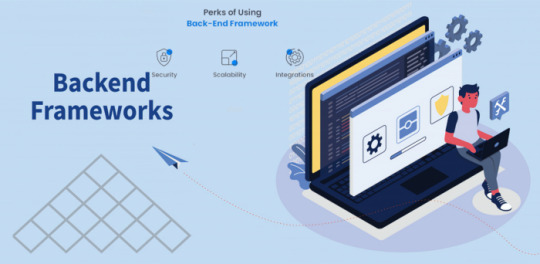
1. Security: A framework provides security from multiple perspectives. Security from external attacks and problems, crashes, slowness, and other negative factors may reduce the quality of the application you’re building.
2. Scalability: Frameworks are extremely adaptable. Assume you’ve chosen an appropriate backend framework for your project. In that case, you can keep using that framework as you build your web application, from the simplest to the most complex.
3. Integrations: Frameworks make integrations easier because they provide pre-built tools.
Backend Frameworks Popular in 2023
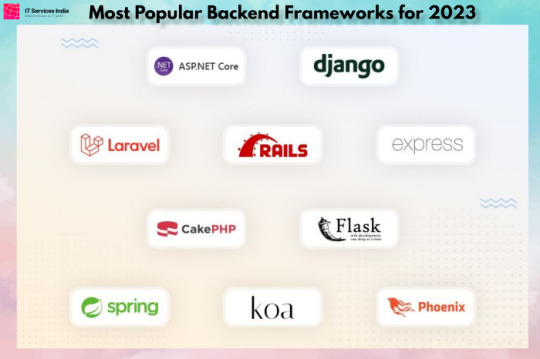
1. Microsoft ASP.NET Core
ASP.NET Core is an open-source, cross-platform framework for developing.NET applications. This framework is a lightweight implementation of the Microsoft server stack that allows you to build and run applications across multiple platforms and environments. Many programming languages, including C#, F#, Visual Basic, NodeJS, and JavaScript, can be used to create web apps and API servers.
Advantages of ASP.NET Core
· For the backend, ASP.NET employs the JavaScript framework, which is one of the most popular programming languages.
· It requires very little coding.
· One of the most noticeable advantages of ASP.NET Core is its improved performance, which makes it the best framework for backend development.
When developing mobile or web applications for Windows users, ASP.NET Core is the best backend language and framework to use.
2. Django
Django is a Python-based open-source web framework that follows the model-view-controller architectural pattern. It specialises in developing database-driven complex websites. If having a high-performance website is your top priority, Django is the right solution for you.
advantages of Django:-
· It can be scaled. The Django code-reusability feature makes it easier for the developers to adjust the growing website traffic.
· It is focused on SEO. This makes it easy to optimise and create SEO-friendly websites. Given its popularity, the framework has a large user base that is willing to assist anyone using it.
· Despite being a No Code framework, Django has a few No Code features and is No Code-oriented. Programmers can use a number of packages without ever writing any code.
Django, one of the most popular backend frameworks, is thought to be the most suitable for building a database-driven website.
3.Laravel
Laravel is one of your best options if you’ve been searching the web for a PHP backend framework. This open-source was created specifically for web applications that use Symphony. Laravel is ideal if you want to concentrate on back-end development.
Laravel Advantages
· It includes several security features and employs algorithms to generate strong passwords that are highly secure.
· In addition to PHP, Laravel provides widgets such as CSS and JS code.
· It excels at complex project creation.
· One of the most notable features of Laravel is the simple API that integrates with the SwiftMailer Library.
4.Express.js
It is a Node.js backend framework called Express that is used to create APIs and web applications. It is a backend component of the MEAN stack, along with the Angular JS frontend and NoSQL databases. It is also regarded as one of the best frameworks for creating online applications.
Advantages of Express.js
· This is one of the simplest programming languages. Node.js developers can use a backend JavaScript framework runtime environment to create both frontend and backend web applications, making it the most popular backend framework.
· It makes use of full-stack JS features. For the same reason, there will be no need to hire separate front and backend developers. It will not only save you time but also money.
Express.js may be the best option for you if you have experience with the JavaScript framework for the backend but lack confidence in other programming languages.
5. CakePHP
Cake By offering a scaffold that can be used as a springboard when developing web applications, PHP makes web development simpler. The scaffold (code) can be used as a jumping off point for creating a web application. It is accessible under an MIT licence and uses the MVC architecture.
Advantages of CakePHP
· It can scale up very well.
· It is suitable for straightforward, novice, or complicated projects.
The most secure backend framework is CakePHP, which can offer the standard architecture to build your web application at any level if you have experience using the PHP backend framework.
6. Spring Boot
Spring Boot is another open-source framework that uses the JavaScript framework for the backend. It provides a powerful, customizable, and modular environment for developing complex enterprise-grade applications.
The Advantages of a Spring Boot
· One of the most noticeable advantages of Spring is that it is highly scalable, thanks to the included side projects, making it the best framework for backend development.
· Spring comes with sister projects that can help improve Spring’s performance.
· Spring is well-liked and has a large support base because it is built on the widely used programming language Java.
7. Phoenix
Phoenix is an open-source framework for advanced web app development written in Elixir and Erlang. It employs the Elixir programming language, which has a syntax similar to Ruby, and the Erlang virtual machine for reliable, fault-tolerant applications. It supports real-time client communication via WebSocket and agnostic channels, as well as the Cowboy server’s request/response functionality.
Advantages of Phoenix
· The backend of web applications is trustworthy.
· It allows for concurrency and the simultaneous operation of multiple processes while maintaining their independence.
· It provides flexibility. Users won’t have to use any third-party tools or the complex messaging system to manage cache layers.
The information provided above can help you choose the top back-end framework from the top ten back-end frameworks currently available. The article covered several of the top backend frameworks, including Django, Laravel, and Ruby on Rails.
Why Should You Use IT Services US for Your Backend Framework?
Because they are written in well-known programming languages, the majority of these frameworks provide exceptional functionality and capabilities for developing your project. The optimal server environment will be determined by the specific needs of your project, and it is up to you to choose which server framework to use. IT Services India, on the other hand, can help you accelerate your growth by providing backend development services. You can now use the latest backend technologies to achieve scalable performance and robust architecture.
The effective back-end development team at IT Services India is made up of professionals who are dedicated to driving innovation and providing comprehensive back-end development services to businesses of all sizes. Additionally, you can get assistance from our committed back-end developers with a transparent and security-first approach. Visit Us for More details :- IT Services India
0 notes
Text
An analysis of the costs of ASP.NET and Laravel Framework
1.Introduction
The most difficult choice for entrepreneurs is to choose an internet framework for their web development. Many entrepreneurs require clarification on the best option to go with Laravel website development service as well as ASP.NET developing services. We can help you make the right choice by laying out the advantages of both frameworks and drawbacks. A thorough analysis of ASP.Net and Laravel the performance of both frameworks, their scalability costs, usage and market share, and more will provide you with clarity and help you accelerate your startup's growth.
2.Asp.net VLS Laravel : Overview

What's Laravel?
Laravel is an PHP-based framework that operates with a beautiful, expressive syntax. Laravel was designed by Taylor Otwell to take the stress out of development by reducing the common tasks that are that are commonly used in web-based projects like authentication as well as routing, sessions and caching. Laravel strives to make development pleasant for the developer, without sacrificing functionality for the application.
Laravel Features
Intuitive unit testing
MVC compatible
Simple authentication
The Artisan Command Line Interface
Object-oriented Library
Advantages of Laravel
This is an open-source platform.
It is ideal to use simple elaborately design your projects.
It's a fantastic tool in accessing data across various kinds of data as well as for communications.
Expertise on the part of Laravel developers.
Limitation of Laravel
Performance is not as good as other programming languages
Poor error handling
Coding quality is compromised because of an approach that is customized
What's Asp.net?

Microsoft has created an application framework for server-side use for the creation of interactive web sites. ASP.net can be described as the successor of Microsoft's original Active Server Pages (ASP) that is built using the Common Language Runtime (CLR). You can create excellent cross-platform enterprise apps using ASP NET.
Asp.net Specifications
Cross-platform compatibility
Asynchronous coding
Data encrypted
NET web API
Language dependency
Advantages of asp.net framework
It has a high capacity for scaling.
Microsoft ownership makes no mistake.
All programming languages work with the Asp .net framework. This framework is compatible great with the app and C#.
It detects errors in development prior to it reaches the compile-time.
There are many tools and features for support available to developers.
It is flawless it works flawlessly on Windows platform.
capable of creating incredible enterprise-level applications.
Rapid development using a variety of pre-coded options.
A user-friendly interface
limitation of asp.net framework
Costs for high licenses
Works only on Windows
Lack of technical support
3. AsP Net Vs Laravel : Cost
In terms of cost, Laravel is a clear winner. Laravel is an open source platform, whereas Microsoft-based Asp.NET has a hosting cost. This means that ASP.NET development is more expensive than PHP Laravel Web development.
4. Final
It is essential to know what your business requirements to select the best framework for your needs. The competition of ASP.Net and Laravel is never ending. In some instances, Laravel development is ideal and some are better suited to .NET development. But, you could seek the assistance of Laravel as well as .Net development companies to find out about the best technology for your particular project.
5.FAQs
1. Is .NET quicker then Laravel?
To create a secure system it is essential to find experienced developers who can utilize the built-in capabilities of ASP.net and the features that are available in PHP Laravel. As a comparison, asp.net is faster than the Laravel framework.
2. Which businesses use ASP.NET Core?
Technologies companies such as Dell, Cisco, Alibaba and many more are using Asp.NET core to manage their software-related processes.
3. Which businesses use PHP Laravel?
Broadcasting and media companies such as BBC, 9GAG, WebIndia and many more run their operations on PHP Laravel.
4. What's the biggest differentiator from PHP Laravel or Asp.NET?
PHP Laravel is an open source server-side programming language, whereas ASP.NET is a web-based application framework. There are a variety of differences among Laravel and ASP.Net which include cost, community, flexibility and performance.
5. Which one is better for development? either Laravel, or ASP.NET?
Both technologies are able to claim their position in a variety of ways. Concerning costs, Laravel is superior to Asp.NET however in terms of customization and flexibility, ASP.Net has the upper advantage.
1 note
·
View note
Text
ASP NET Vs Other Frameworks In Web Development
In the ever-changing realm of web development, the selection of the appropriate framework is pivotal for constructing robust and scalable web applications. ASP.NET, a framework crafted by Microsoft, stands as a prominent contender in this domain. This article delves into a comparative analysis of ASP.NET alongside other well-known web development frameworks, exploring their features, advantages, and suitable use cases.
ASP.NET serves as a server-side web development framework, empowering developers to create dynamic and sophisticated web applications. Integrated into the broader .NET ecosystem, ASP.NET supports various programming languages such as C# and Visual Basic, fostering a versatile development environment. Notably, it enhances extensibility by adopting the Model-View-Controller (MVC) architecture, a paradigm that promotes the creation of simple and easily maintainable code, thereby improving the efficiency of web application development.
Comparative Analysis
ASP.NET vs. PHP:
In the realm of web development, the comparison between ASP.NET and PHP is common. While PHP, a server-side scripting language, enjoys widespread use, the combination with ASP.NET often provides performance and security benefits. ASP.NET applications, being compiled, exhibit faster runtime, and seamless integration with the Windows operating system enhances application security.
ASP.NET vs. Ruby on Rails:
Competing with ASP.NET, Ruby on Rails is renowned for its simplicity and adherence to composition principles. ASP.NET, with its robust Visual Studio integrated development environment (IDE) and extensive library support, attracts developers seeking a comprehensive development environment. The choice between Ruby on Rails and ASP.NET is often influenced by project-specific requirements and individual developer preferences.
ASP.NET vs. Django:
Django, a high-level Python web framework, shares similarities with ASP.NET in modularity and scalability focus. However, ASP.NET distinguishes itself through seamless integration with Microsoft technologies and effortless collaboration within the broader .NET ecosystem. This positions ASP.NET favorably for enterprises deeply immersed in the Microsoft ecosystem.
Key Features of ASP.NET
MVC Architecture:
ASP.NET utilizes the MVC architectural pattern, enhancing code organization and maintainability. The separation of concerns allows developers to streamline development and debugging processes by focusing on specific aspects of the application.
Integrated Development Environment (IDE):
Visual Studio, Microsoft’s powerful integrated development environment, serves as a valuable tool for ASP.NET developers. Features such as code completion, debugging, and testing contribute to an efficient development workflow.
Cross-platform Compatibility:
The introduction of .NET Core renders ASP.NET cross-platform, enabling developers to build and deploy applications on various operating systems. This flexibility broadens ASP.NET’s reach and accommodates diverse hosting environments.
Advantages of ASP.NET
Language Interoperability:
ASP.NET supports multiple programming languages, including C# and Visual Basic, providing developers the flexibility to choose the language that best suits their skills and project requirements.
Scalability and Performance:
The compiled nature of ASP.NET applications contributes to superior performance. Its capability to handle large volumes of concurrent users makes it an ideal choice for applications with scalability requirements.
Security Features:
ASP.NET incorporates robust security features, including authentication and authorization mechanisms. Integration with Windows security services enhances protection against common web application vulnerabilities.
The choice between ASP.NET and other web development frameworks depends on various factors, including project requirements, developer expertise, and organizational preferences. ASP.NET’s strength lies in its versatility, performance, and seamless integration with Microsoft technologies. As the web development landscape evolves, ASP.NET remains a formidable contender, offering a comprehensive solution for building modern and scalable web applications.
Whether opting for the simplicity of PHP, the convention-over-configuration approach of Ruby on Rails, or the modularity of Django, understanding the strengths and nuances of each framework is essential. In navigating the evolving technological landscape, decision-making should be driven by careful consideration of the specific needs and goals of web development projects.
0 notes
Text
Asp.net in hindi
DOWNLOAD NOW Asp.net in hindi
PHP is prefered by developers for all the advantages it provides but they can’t ignore the disadvantages that comes with it. PHP is easier to maintain and has a huge community of developers that provides help whenever needed. But the PHP developers have to make sure to use the framework as it is meant to be used to ensure application’s security. The framework is not only fast but ensures the security of the application. The market demands faster app development process and PHP gives the benefit to any mobile app development company that does multiple productions in one day. One of the biggest advantage that PHP has is the rapid development. PHP framework is said to be adopted by many businesses in the near future and you can look at the upcoming best php frameworks here. On the other hand PHP is great for professional programmers as well because of all the advanced features it offers. The best thing about PHP framework is that it is great for beginners since it allows simple and easy coding techniques. It is an open source programming language that is used for web development and can be embedded into HTML. PHP is a recursive acronym for Hypertext Preprocessor. However, in this article we will talk about both the programming languages, breakdown the terms in for better understanding and discuss which is better ASP.NET or PHP. You must have seen a ton of articles on differences between ASP.NET and PHP by now but in reality most of those articles are biased. Since both are quite popular languages in the programming world. In one hand, PHP is a general scripting language on which developers rely to a great extent and on the other hand, ASP.NET has a brand like Microsoft attached to its name.ĪSP.NET vs PHP is an argument that doesn’t seem to have an end any time soon. They are used by huge number of developers and this makes it difficult for the new developers to choose either one of them. WP Tutorial WebPages Intro WebPages Razor WebPages Layout WebPages Folders WebPages Global WebPages Forms WebPages Objects WebPages Files WebPages Databases WebPages Helpers WebPages WebGrid WebPages Charts WebPages Email WebPages Security WebPages Publish WebPages Examples WebPages ClassesĪSP.NET Razor Razor Intro Razor Syntax Razor C# Variables Razor C# Loops Razor C# Logic Razor VB Variables Razor VB Loops Razor VB LogicĪSP Classic ASP Intro ASP Syntax ASP Variables ASP Procedures ASP Conditionals ASP Looping ASP Forms ASP Cookies ASP Session ASP Application ASP #include ASP Global.Both PHP and ASP.NET has broad bases.
DOWNLOAD NOW Asp.net in hindi
0 notes
Text
Linux vs Windows Hosting
Linux vs Windows Hosting
Choosing between these two types of web hosting is one of the hardest tasks in the hosting industry. Regarding head-to-head competition, both perform their best, making them the best in that price segment as both are relatively affordable and the most popular hosting services. However, in this article, we have got you some points that differentiate the hosting service in terms of price, performance, and popularity, so let’s straightly dive into it.
Comparison of Linux and Windows Hosting
Server Stability
In case of stability, Linux hosting is considered more stable and secure than windows hosting. You rarely need to worry about their reboot and the configuration. On the other side, windows hosting can become unstable when many of the programs are running backside, like file servers and unutilized databases. So the thing is there is an uptime issue in windows hosting.
Security
Security is the most concerning matter in today’s digital world, as, without proper security, you cannot host a website without proper security as security comes as a first priority thing when it comes to hosting services. In the case of Linux, hosting is more secure than windows hosting as Linux hosting provides many security features like iptables, tcp_wrapper, and pam. But on the other hand, windows hosting only provides you with firewall security only.
Control panel
After the security, the next question comes is how can we manage the hosting service how will control will it be easy to controllable and manageable? In the case of Linux hosting, you will be getting an open-source control panel management system. But in the case of windows hosting servers, you will be getting limited control panel boards such as Plesk, website panel, etc.
Cost
When it comes to cost Linux hosting is reliably cheaper than windows hosting as it is an open source. But in the case of windows hosting you may somehow face some expenses for licensing and also for additional programs. So the thing is if you have a low budget and want a reliable hosting service then you can plan for Linux hosting as it would be a more affordable option.
Server applications
In case of server reliability linux hosting support
.NET core
PHP
MS access
MS SQL
Classic ASP
ASP.NET
MySQL
Visual Basic Development
In the case of Windows Hosting
Common programming languages is
PHP
MySQL
Conclusion
The key point is you have to first consider your goals and needs when choosing between linux hosting and windows hosting as both are the best hosting providers in today’s generation.
Source — https://harrychristian.livejournal.com/9542.html
#linux vs windows server performance#linux vs windows server web hosting#linux hosting vs windows hosting#Linux Hosting vs. Windows Hosting#Linux vs Windows Hosting
0 notes
Text
Java Vs Asp.net Which One Is The Best Choice For Your Project?
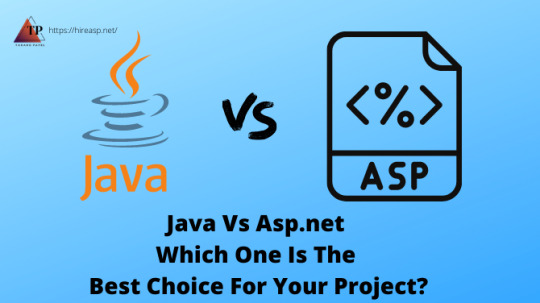
When developing applications, the language you choose is a crucial factor in the site's performance. The choice of programming languages is based on many factors, like the technical proficiency of your team. Budget, the nature of your website's learning curve, and more. Failure to choose the correct programming language can have catastrophic consequences. It is leading to the loss of money and resources. This is not an easy job, and numerous programming languages make it difficult for the user.
Build your app with us!! With your needs and requirements. Hire asp.net developer from us.
Why Should We Compare Them?
You may be thinking about why we are comparing the two languages of programming and framework. The reason is that Java is frequently referred to as a framework, too. It is compatible with Groovy, Scala, PHP, Ruby, Python, and many more.
Both frameworks can be used for the development of desktop or web-based applications. They're mainly used to build complex enterprise-level solutions. They are object-oriented, allowing modular code and identical syntax, with both being made up of C and C++.
Therefore, both Java and .NET are extensively used in software development, enterprise-level, extensive data. And enterprise-level applications. So, it is sensible to evaluate the different technologies to see which one is best suited to your needs. As a user or your preferences as developers.
Java vs .Net : Core Differences
Work Environment
Java Enterprise Edition and web applications created within it can be used on any platform. While the software built by using .NET is only compatible with only the Windows environment.
The target audience
Though .NET is targeted towards Windows users, only some open-source solutions are accessible. In contrast, Java takes advantage of Java Virtual Machine (JVM). As we all know, JVM is based on the idea that software can run on any device and run under all operating systems.
Languages supported
Java and .NET support common programming languages, such as Python, Ruby, and PHP. Furthermore, if you recruit Java developers and utilize JavaScript, Clojure, Groovy.
The default language is HTML0.
The J2EE or Java 2 Platform Enterprise Edition set Java as default for the languages. However, .NET is compatible with different languages. You can select C#, F#, VB.NET, and C++. This is thought of as a more accessible option to develop business applications. However, the skills needed to code are more diverse.
IDEA
.NET Applications have an IDE that is a default called a studio. In addition, Java has four IDEs named Eclipse, IntelliJ Idea, Oracle NetBeans, and Oracle JDeveloper.
Java Vs ASP.NET Which one is more suitable for businesses?
In computer programming, we are constantly debating about Java and .Net. And their potential benefits in creating complex, enterprise-level apps. While they share many similarities, there are some fundamental distinctions between them. How do you decide which one is best for you? This article will assist you in making the best choice. It is crucial to work with the most reliable asp.net development company. To be aware of the exact requirements you have.
What exactly is Java technology?
It was released in 1995 by Sun Microsystems 1995. Java is a programming language and a computing platform that is speedy, reliable, robust, secure. And reliable for all your development requirements. It's practically everywhere and is used everywhere, from gaming consoles, datacenters to supercomputers.
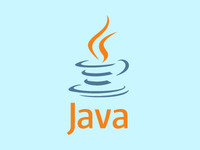
What is ASP.NET?
ASP.NET is a no-cost open-source, cross-platform development platform to create various apps. .NET allows multiple languages editors, libraries, and editors to develop applications. For the desktop, mobile, web games, and IoT.
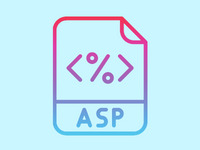
Java Advantages
Java is a portable programming language. It gives you the option to select the machine and operating system you'd like to create your site.
Since Java does not often call databases and rarely, object-relational support is more efficient.
Integration of Java applications to other operating systems is effortless. This is accomplished through the help of modern integration tools such as Jenkins and Travis CI. It is simple to move between Java platforms since it offers backward compatibility. The Java community is expanding and changing constantly, so it will likely receive a lot of support.
.NET Advantages
Its popularity .NET is that it permits ASP.NET programmers to code in multiple languages. This makes it a versatile platform and user-friendly.
In line with the company's requirements, the developer will be able to use the best features of every language. And design an innovative website created exclusively for your business.
The versatility of .NET is one of the reasons why developers and businesses all over the world. Love ASP.NET for traditional web development.
Microsoft offers a single environment that runs on the .NET platform.
The .NET platform is an unhindered horizontal scaling capability that allows users to access tools.
Disadvantages of Java
Because Java is platform-independent, the risk of security breaches is relatively high.
It is a multi-platform one; the developed app may be slower than other languages.
Disadvantages of ASP.NET
There is only limited support for object-relational for .NET since support is available only for Entity Framework.
Migration code within .NET can be more costly when compared with other frameworks.
Managed code in .NET might be slower than native code.
Java vs .Net Which is Better?
JAVA
Java is an advanced class-based, object-oriented programming system.
Java applications run across all Java virtual machines (JVM) regardless of the architecture used by the computer.
Supports Multiple Operating Systems.
Java is a less efficient method of garbage collection contrasted to. NET.
Java JDBC (Java DataBase Connectivity) is used to connect to the database.
For Java, various 3rd-party IDEs (Integrated Development Environment) are available.
It can be related to architecture.
ASP.NET
.NET is an open-source, cross-platform open-source software framework that allows you to create software applications.
Launched by Microsoft
.NET requires CLR (Common Language Runtime) for execution means during runtime.
It is only compatible with Windows Operating System.
.NET is a much more efficient way of garbage disposal when compared to Java.
The .NET ADO (ActiveX Data Objects (ADO) is used to establish connections to databases.
It is an industry-standard IDE (Integrated Development Environment), i.e. Microsoft Visual Studio.
It can work with disconnected architecture.
Java vs .Net: Development at the Enterprise Level
Each Java and .NET are excellent tools that can assist you in reaching your objective of developing a website for an enterprise. Their roots are in C# as well as C++ and C. Both of these languages are oriented towards objects and are safe for type. Although they use different syntax, each Java and .NET try their best to achieve the same goal.
What's Your Pick?
In the case of Java and .NET, there is no right or wrong answer. Positive and negative points describe both. Both of them can assist you in creating robust and flexible enterprise applications. The choice between Java and .net will depend on your site's needs. And the resources for development available and also the users.
To succeed and expand in a highly competitive marketplace, you'll need both languages. A business will benefit from both, resulting in highly-performing websites and apps.
To make the most of the two languages. Only an expert will create a professional solution that will provide you with the finest solutions you're seeking.
Where To Use Java?
Java can be described as a universal-purpose programming language. This means it can be employed in a variety of branches:
Android applications
Enterprise applications for enterprises (Java is extensively used by the government and, as a result, frequently associated with older code. However, it's also utilized for modern applications such as Pinterest and Spotify)
Web-based apps (Google Docs and Gmail)
Software (Eclipse, Jira)
embedded systems
Where To Use .NET?
websites and web applications
Client applications
Gaming
enterprise development
0 notes